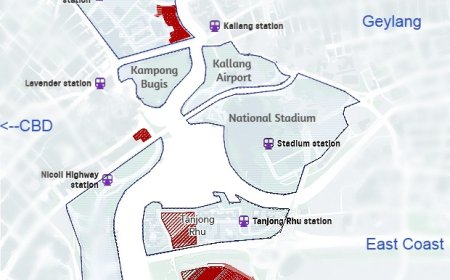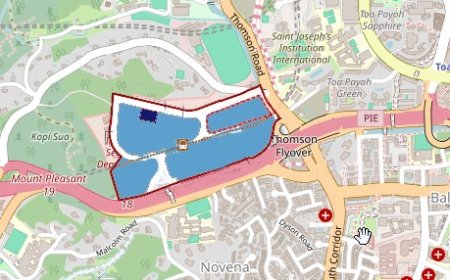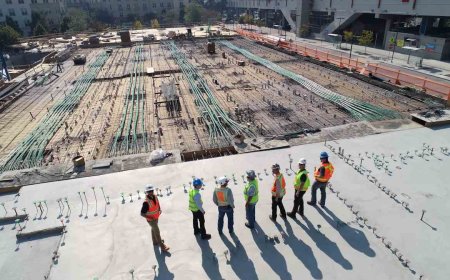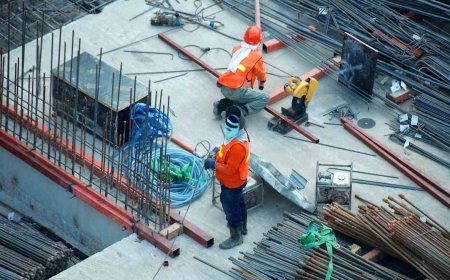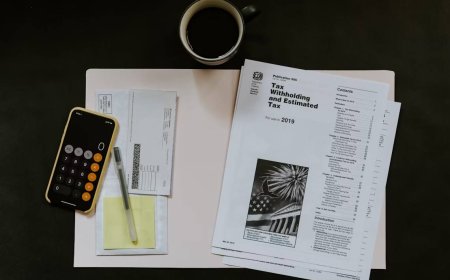Transitioning Stamp Duty Refunds to Fully Digital Payments
From September 2025, Stamp Duty cheque refunds will be discontinued. Learn how GIRO and PayNow will streamline refunds, the benefits of going digital, scenarios of preparedness, and FAQs for real estate professionals.

What You Need to Know
Introduction
Estate Agents (EAs), Key Executive Officers (KEOs), and Real Estate Salespersons (RESs) are advised that the Inland Revenue Authority of Singapore (IRAS) will cease issuing cheque refunds for Stamp Duty from September 2025 onward, moving entirely to electronic refund channels. This change aligns with Singapore’s national initiative to eliminate paper-based cheques and push for a fully digital payment ecosystem.
Why the Shift to Electronic Refunds?
-
Aligned with national objectives : This change supports the government’s goal of fostering a cheque-free environment by the end of 2025.
-
Streamlined operations : Electronic channels reduce manual handling, postal delays, and administrative costs.
-
Faster, more reliable payouts : Refunds are disbursed directly into bank accounts, offering greater convenience for both professionals and clients.
This shift has already been implemented for other types of tax refunds, such as Corporate, GST, and Property Tax. From September 2025, Stamp Duty refunds will fully transition to digital platforms.
How It Works: GIRO and PayNow Explained
| Payment Mode | Description | Considerations |
|---|---|---|
| GIRO | Automated debit and credit mechanism linked to a bank account | Ensures refunds flow directly into the registered account; may involve standard bank processing times |
| PayNow (via NRIC/FIN/UEN) | Real-time transfer directly into a user’s bank account | Requires pre-registration; refunds are automatically credited once set up |
-
If both GIRO and PayNow are registered, GIRO will take precedence.
-
Once registration is complete, no additional action is needed—refunds will be processed automatically.
-
Those who do not register for either method will face delays, as IRAS will withhold refunds until details are submitted.
-
Late registration does not entitle individuals to any compensatory interest for delayed refunds.
Real-World Scenarios
Scenario 1: Fully Prepared Agent
A real estate salesperson registers their NRIC for PayNow well in advance. When a Stamp Duty refund is due, the amount is credited instantly into their account without further steps.
Scenario 2: Partial Preparedness
An agent has only GIRO set up. They still receive the refund directly into their bank account, but with a slight processing delay compared to PayNow.
Scenario 3: Late Registration
An agent does not set up either GIRO or PayNow before September 2025. When entitled to a refund, the payout is held back until registration is completed. This results in unnecessary delays and client frustration.
Advantages of Electronic Refunds
-
Speed and efficiency: Direct credit into bank accounts eliminates mailing delays.
-
Cost-effective: Reduces the administrative expenses linked to cheque processing.
-
Environmentally friendly: Supports sustainability by reducing paper use.
-
Secure: Prevents cheque loss, theft, or expiry issues—funds are traceable and protected.
Best Practices for Real Estate Professionals
-
Set up GIRO or PayNow early—do not wait until a refund situation arises.
-
Ensure both are registered for maximum flexibility.
-
Verify registration to confirm that details are properly recorded.
-
Update information promptly if your bank account changes.
-
Retain documentation of all registration and refund transactions as proof.
Frequently Asked Questions (FAQ)
-
When does this change take effect?
-
From September 2025, with full cessation of cheque refunds by December 2025.
-
-
Why is IRAS stopping cheque refunds?
-
To support efficiency, security, and Singapore’s move toward a cheque-free financial system.
-
-
Which refunds already use digital methods?
-
Corporate, GST, and Property Tax refunds are already digital.
-
-
Which payment methods will be accepted?
-
Only GIRO and PayNow (linked to NRIC/FIN/UEN).
-
-
Can I register for both?
-
Yes, but GIRO will be used as the default method if both are active.
-
-
How do I register?
-
Through your bank for GIRO and via PayNow-linked NRIC/FIN/UEN setup.
-
-
What happens if I don’t register?
-
Refunds will be delayed until registration is completed.
-
-
Are there any fees involved?
-
No, electronic refunds are free of charge.
-
-
Will I be notified when refunds are processed?
-
Yes, notifications are provided through digital correspondence.
-
-
What if I change my bank account?
-
Update your GIRO or PayNow details promptly to avoid disruptions.
-
-
Will IRAS pay interest for delayed refunds?
-
No, if delays are due to lack of registration, no interest will be paid.
-
-
How are refunds to multiple parties handled?
-
Refunds will be sent to the nominated party, and private settlements may be required for distribution.
-
-
Can PayNow via mobile number be used?
-
No, only PayNow linked to NRIC/FIN/UEN is accepted.
-
-
What about foreigners or companies?
-
Foreigners can register PayNow with their FIN, while companies must register using their UEN.
-
-
What if I already have GIRO with IRAS?
-
Ensure your existing GIRO setup covers Stamp Duty; otherwise, a separate setup may be required.
-
Key
-
Cheque refunds for Stamp Duty will cease by September 2025—all refunds will be processed electronically.
-
GIRO and PayNow registration is mandatory—agents should prepare ahead of time.
-
No interest is payable for delays caused by non-registration.
-
Digital refunds are faster, safer, and eco-friendly, benefiting both professionals and clients.
Algene Toh
Disclaimer: The information presented on BSR2.com is intended for general informational purposes only. It does not constitute legal, financial, investment, or real estate advice and should not be relied upon as such. While every effort has been made to ensure the accuracy, reliability, and completeness of the content at the time of publication, all data is derived from publicly available sources and may be subject to change without notice. BSR2.com makes no representations or warranties of any kind, express or implied, regarding the suitability, timeliness, or accuracy of the information provided for any specific purpose. Users are strongly encouraged to seek independent advice from qualified professionals before making any decisions based on the content found on this website. BSR2.com shall not be held liable for any loss, damage, or consequence, whether direct or indirect, arising from the use of or reliance on the information provided. The content is intended as a general guide and does not take into account individual circumstances.
What's Your Reaction?
 Like
0
Like
0
 Dislike
0
Dislike
0
 Love
0
Love
0
 Funny
0
Funny
0
 Angry
0
Angry
0
 Sad
0
Sad
0
 Wow
0
Wow
0

